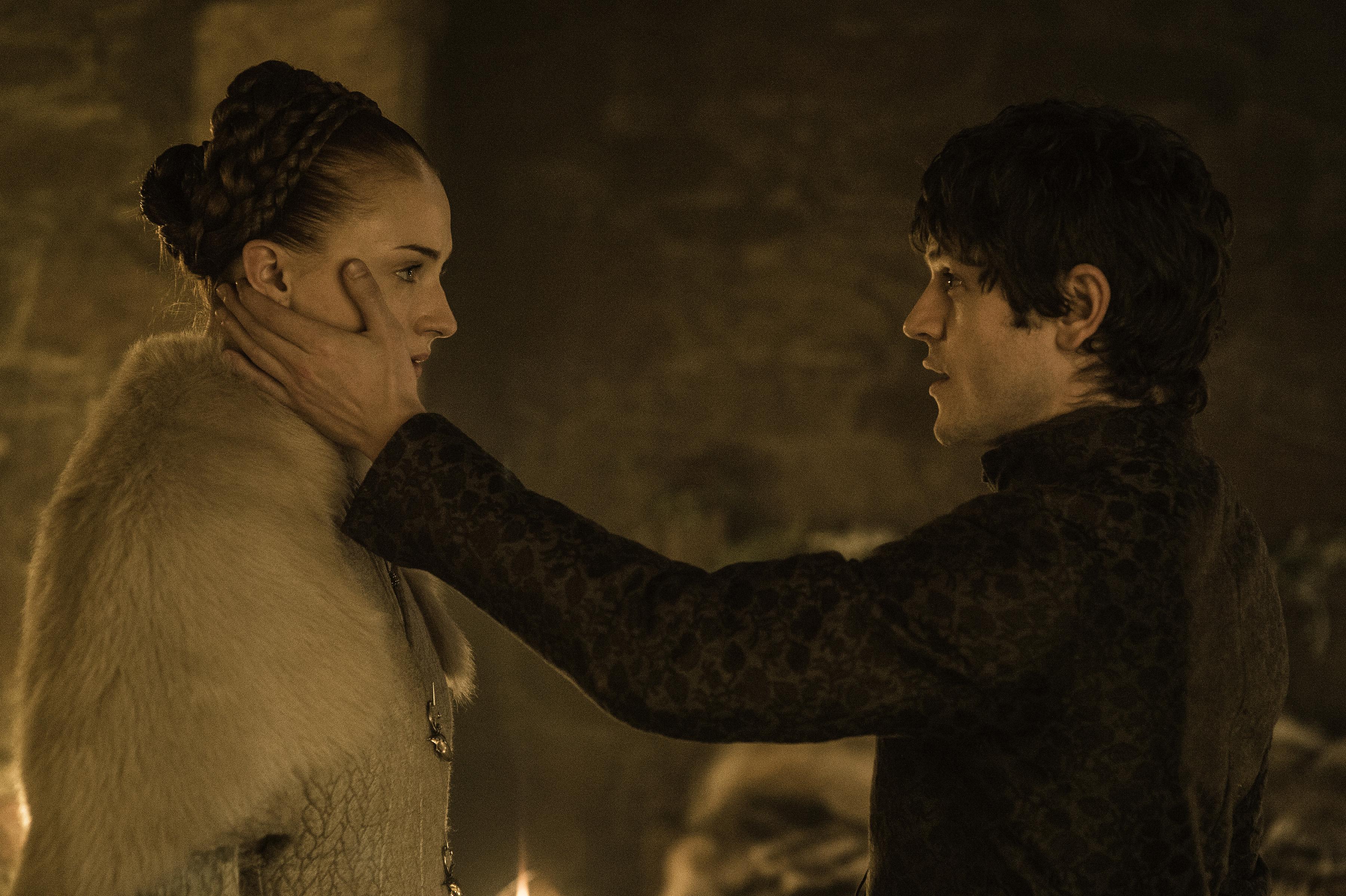This post contains spoilers for the most recent episode of Game of Thrones.
At the end of Sunday’s episode of Game of Thrones, Ramsay Bolton rapes Sansa Stark on their wedding night, and forces Theon Greyjoy (Reek) to watch. It’s a scene that, to say the least, has proven divisive. On Twitter, Sen. Claire McCaskill called it “disgusting and unacceptable” and declared that she was “done” with the show. To its credit, the show didn’t depict the act itself, instead cutting to Theon’s face as he is forced to watch. Game of Thrones may have a history of mishandling rape, but this particular scene was necessary. And, unlike some of the others, it was treated with appropriate gravity: as an act of war.
As a character, Sansa has—until very recently—been widely underappreciated by viewers. We all remember the old Sansa, who simpered about wanting Joffrey’s babies. We may have cursed at her along with Arya: “Seven hells.” Yes, Sansa started out naive, and a bit whiny. But as others have pointed out, Sansa’s primary offense wasn’t rooted in any specific trait, but instead in being precisely what she was raised to be: a lady in an unrelentingly patriarchal society.
Now, Sansa is fully aware of what her world does to its women. In going forward with the plan to marry Ramsay, she is both scared and resolute—but she has a plan, and like her mentor in deception, Littlefinger, she’s learned to keep her cards close. She knows she has allies: “The North remembers.” And she knew what will happen on her wedding night—she’s far too smart to assume that Ramsay would respect her the way Tyrion did. Rape is rape, and this one was particularly hard to stomach as a viewer. But it’s also important to remember all of these factors, and to know that Sansa must have weighed them all.
Arya might be the one training to assume many different faces, but Sansa has been playing a similar game of her own for quite some time—this episode especially included. Since Ned Stark’s death in King’s Landing, his daughters have been separately forging their own paths of survival—and demonstrating that there is more than one path to being a “strong female character.” While Arya took the more archetypal action heroine route, Sansa learned how to play a quieter game in King’s Landing—the art of making astute political decisions and valuable connections. Arya has been consumed by vengeance for several seasons, whereas Sansa had to struggle simply to survive.
Sansa’s life is still at risk in Bolton-dominated Winterfell, but she’s clearly playing at something bigger than simple survival now. It’s unclear whether she and Littlefinger have a plan, or if he simply betrayed her by telling Cersei where she is. But whatever happens, it’s clear that Sansa is actively shaping her own future: She refused Brienne’s rescue, and refused to leave Winterfell or abandon her dismal nuptial plans after Myranda tried to scare her off. These decisions have nothing to do with Stockholm Syndrome, and, needless to say, don’t make her rape any less deplorable. But they do mean that those calling this just another pointless Game of Thrones rape are missing the point. Hopefully, within a few episodes, we’ll see Sansa’s plan in action—ideally it will involve Sansa taking down the wretched family that took her home, starting with Ramsay. Sansa’s rape was, indeed, as predictable as it was painful. But it’s also a pain Sansa must have predicted would happen, and one that she knew she could withstand, in service of her larger goal.
